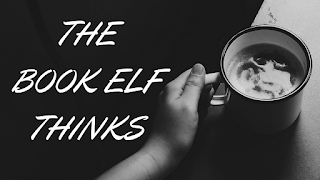Introduction
 |
| Source: Goodreads.com |
ISBN:978-1911079231
Genre: Fiction
Genre: Fiction
Publishers: Granite Cloud
Price: Rs. 999/- ( I got the book for review from b00k r3vi3ws)
Behind the Book
Heartbreak and transformation in the beauty of a Ukrainian village
For seven-year old Angela, happiness is exploring the lush countryside around her home in western Ukraine. Her wild imagination takes her into birds and flowers, and into the waters of the river.
All that changes when, one morning, she sees her mother crying. As she tries to find out why, she is drawn on an extraordinary journey into the secrets of her family, and her mother's fateful choices.
Can Angela lead her mother back to happiness before her innocence is destroyed by the shadows of a dark past?
Beautiful, poetic and richly sensory, this is a tale that will haunt and lift its readers.
"A strange and beautiful novel" - Esther Freud, author of Mr Mac and Me, Hideous Kinky, Peeless Flats
"Readers looking for a classic tale of love and loss will be rewarded with an intoxicating world" - Kirkus Reviews
About the Author
Leonora grew up in London but has lived in New York, Kyiv and Barcelona. She worked in business and then as an entrepreneur, before turning to writing full-time. Read her full biography at www.leonorameriel.com.

Reading this book can be best described as a "feel good experience." There is something poignant and magical about this book. And honestly I am at loss of words when I think of describing my experience about it.
Where should I start from? The characters. Ah! Each one of them etched so beautifully, that by the time you have reached halfway through the novel you feel you know the characters extremely well. They are all flesh and bones for you to feel, their pain, fear and love palpable through those pages and that is what raises the whole reading experience altogether.
Many a times you read a book where the characters are well crafted but they end up sounding the same which in this case happens to be the author's voice making it a boring narrative. But that is where the author scores a brownie point. Each and every character has such distinct personalities and not once has she allowed that to be slipped away from in the narrative. You need to believe me when I say I could actually hear their voices while reading the dialogues.The most amazing part about this book has to be the descriptions. The author has described the setting so vividly, the nature comes alive in her words and you are transported to that location.
Language is the key to this book. It seems like a poetry in prose. What beautiful phrases and expressions! She made me sigh at so many those. Sample this:
“I want to disappear into the dough of your body, pushing myself back in,you would roll and knead me into yourself and I would be safe forever”
And this is just one of the gems this book is studded with.
Strongly recommended for people who enjoy reading good literary fiction with a story that promises to move you.
“I want to disappear into the dough of your body, pushing myself back in,you would roll and knead me into yourself and I would be safe forever”
And this is just one of the gems this book is studded with.
Strongly recommended for people who enjoy reading good literary fiction with a story that promises to move you.
Foodie Verdict
This book is like Parwal ki mithai - Unique distinct flavours but delicious nevertheless.
 |
| Source: indiatvnews.com |